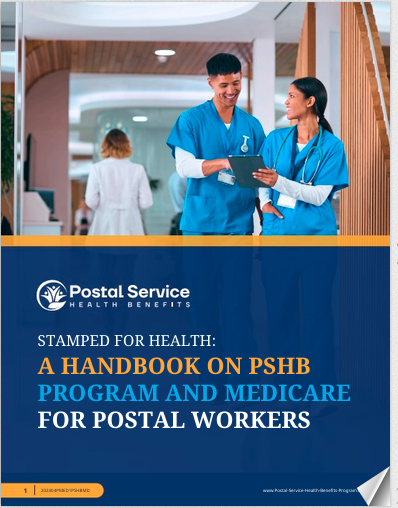Key Takeaways
- The Postal Service Reform Act reshaped the U.S. Postal Service, particularly through the establishment of the Postal Service Health Benefits (PSHB) program.
- The PSHB program brings significant changes to health insurance options for postal workers, offering benefits that align with federal employee health standards.
How Legislation Changed Everything: The Postal Service Reform Act’s Role in PSHB
The Postal Service Reform Act (PSRA), signed into law in April 2022, marked a pivotal moment for the U.S. Postal Service (USPS) and its employees. This legislation, which aimed to address long-standing financial challenges facing the USPS, also introduced substantial changes to employee benefits, most notably through the creation of the Postal Service Health Benefits (PSHB) program. The PSHB is set to become a cornerstone of healthcare coverage for postal workers, replacing the Federal Employees Health Benefits (FEHB) program for USPS employees and retirees. This article explores the key aspects of the PSRA, its impact on the USPS, and how the PSHB program is reshaping health insurance for postal workers.
Understanding the Postal Service Reform Act
The Postal Service Reform Act was enacted to address the financial instability of the USPS, which had been struggling with declining mail volumes and growing financial obligations, particularly concerning retiree health benefits. A significant portion of the USPS’s financial woes stemmed from a 2006 law that required the USPS to pre-fund retiree health benefits decades into the future, an obligation that no other federal agency faced. The PSRA alleviated this burden by eliminating the pre-funding requirement, allowing the USPS to manage retiree health benefits on a pay-as-you-go basis. This change provided immediate financial relief, helping to stabilize the USPS’s finances.
In addition to financial reforms, the PSRA also mandated the creation of the Postal Service Health Benefits program. This program is set to replace the FEHB program for USPS employees and retirees beginning in 2025. The PSHB program is designed to align more closely with the specific needs of postal workers while also integrating with Medicare for retirees.
What is the Postal Service Health Benefits Program?
The Postal Service Health Benefits (PSHB) program is a new health insurance program established by the PSRA to provide health coverage for USPS employees, retirees, and their eligible family members. The PSHB program will operate under the oversight of the Office of Personnel Management (OPM), similar to the existing FEHB program, but with several key differences tailored to the USPS workforce.
One of the most significant changes under the PSHB program is the requirement for USPS retirees to enroll in Medicare Part B as a condition of receiving PSHB benefits. This integration with Medicare is expected to reduce the overall cost of health benefits for the USPS while ensuring that retirees have comprehensive coverage. Additionally, active postal employees will continue to have access to health insurance through the PSHB, but with plan options specifically designed to meet the needs of the USPS workforce.
The Transition from FEHB to PSHB
The transition from the Federal Employees Health Benefits program to the Postal Service Health Benefits program represents a significant shift for USPS employees and retirees. For decades, postal workers have relied on the FEHB program for their health insurance needs, which provided a broad range of plans and coverage options. However, the FEHB program was not specifically tailored to the unique needs of postal workers, particularly when it came to the integration with Medicare.
With the implementation of the PSHB program, USPS employees and retirees will see several key changes:
- Medicare Integration: As mentioned, Medicare Part B enrollment will be mandatory for USPS retirees in the PSHB program. This requirement is intended to ensure that retirees have access to comprehensive healthcare coverage while also reducing the cost burden on the USPS.
- Tailored Health Plans: The PSHB program will offer health plans specifically designed for postal workers, taking into account factors such as the physical demands of the job and the unique healthcare needs of postal employees. This tailoring is expected to provide more relevant coverage options for USPS employees and retirees.
- Cost Implications: While the transition to the PSHB program is expected to reduce costs for the USPS, it may also result in changes to premium structures and out-of-pocket costs for employees and retirees. However, these details will be determined as the program is implemented and plan options are finalized.
The Impact on Postal Workers and Retirees
The introduction of the PSHB program will have a profound impact on postal workers and retirees, particularly in terms of their healthcare coverage options. For many, the mandatory enrollment in Medicare Part B will represent a significant change, especially for those who may not have previously enrolled in Medicare.
For active employees, the PSHB program is expected to offer health plans that are more closely aligned with the demands of the postal workforce. This could mean better coverage for issues such as work-related injuries and conditions that are more prevalent among postal workers.
However, the transition may also bring challenges. Employees and retirees will need to navigate the new system, understand their options, and make informed decisions about their healthcare coverage. This may require additional support and education from the USPS and the OPM to ensure that all affected individuals can smoothly transition to the PSHB program.
Why the Postal Service Reform Act Matters
The Postal Service Reform Act is a landmark piece of legislation for several reasons. First and foremost, it addresses the long-standing financial challenges that have plagued the USPS for years. By eliminating the pre-funding requirement for retiree health benefits, the PSRA provides much-needed financial relief and stability to the USPS, allowing it to focus on its core mission of providing reliable mail and package delivery services.
Moreover, the creation of the PSHB program under the PSRA represents a significant evolution in how health benefits are provided to postal workers and retirees. The program’s design reflects a recognition of the unique needs of the postal workforce, offering tailored health plans and integrating with Medicare to provide comprehensive coverage.
The PSRA also underscores the importance of legislative action in addressing the challenges faced by federal agencies and their employees. In the case of the USPS, the PSRA demonstrates how targeted reforms can help secure the financial future of a vital public service while also ensuring that employees and retirees have access to quality healthcare coverage.
Navigating the Changes Ahead
As the PSHB program is implemented over the coming years, USPS employees and retirees will need to stay informed about the changes and how they will affect their healthcare coverage. The USPS, in collaboration with the OPM, is expected to provide guidance and resources to help individuals understand their options and make the best decisions for their health and financial well-being.
One of the key steps in this process will be educating employees and retirees about the requirement to enroll in Medicare Part B. This will be particularly important for retirees who may not be familiar with Medicare or who have not previously enrolled. The USPS will need to ensure that these individuals have access to the information and support they need to navigate this transition.
Additionally, active employees will need to evaluate the new health plan options available under the PSHB program. While these plans are expected to be more closely aligned with the needs of postal workers, individuals will still need to carefully consider their options and choose the plan that best meets their needs.
Looking to the Future
The Postal Service Reform Act and the creation of the Postal Service Health Benefits program mark the beginning of a new era for the USPS and its employees. While the transition to the PSHB program will bring significant changes, it also offers an opportunity to provide more relevant and comprehensive health coverage for postal workers and retirees.
As the USPS moves forward with the implementation of the PSHB program, it will be essential to focus on communication, education, and support to ensure a smooth transition for all affected individuals. By doing so, the USPS can help ensure that its employees and retirees have access to the healthcare coverage they need while also securing the financial future of the organization.
The Postal Service Reform Act is a transformative piece of legislation that addresses critical challenges facing the USPS while also reshaping health benefits for its employees and retirees. The PSHB program, as a result of this act, offers a more tailored approach to health coverage, integrating with Medicare and providing plans that better meet the needs of the postal workforce. As the USPS embarks on this new chapter, the focus will be on ensuring a smooth transition and continued support for its dedicated employees and retirees.
Contact Information:
Email: [email protected]
Phone: 8135553456






